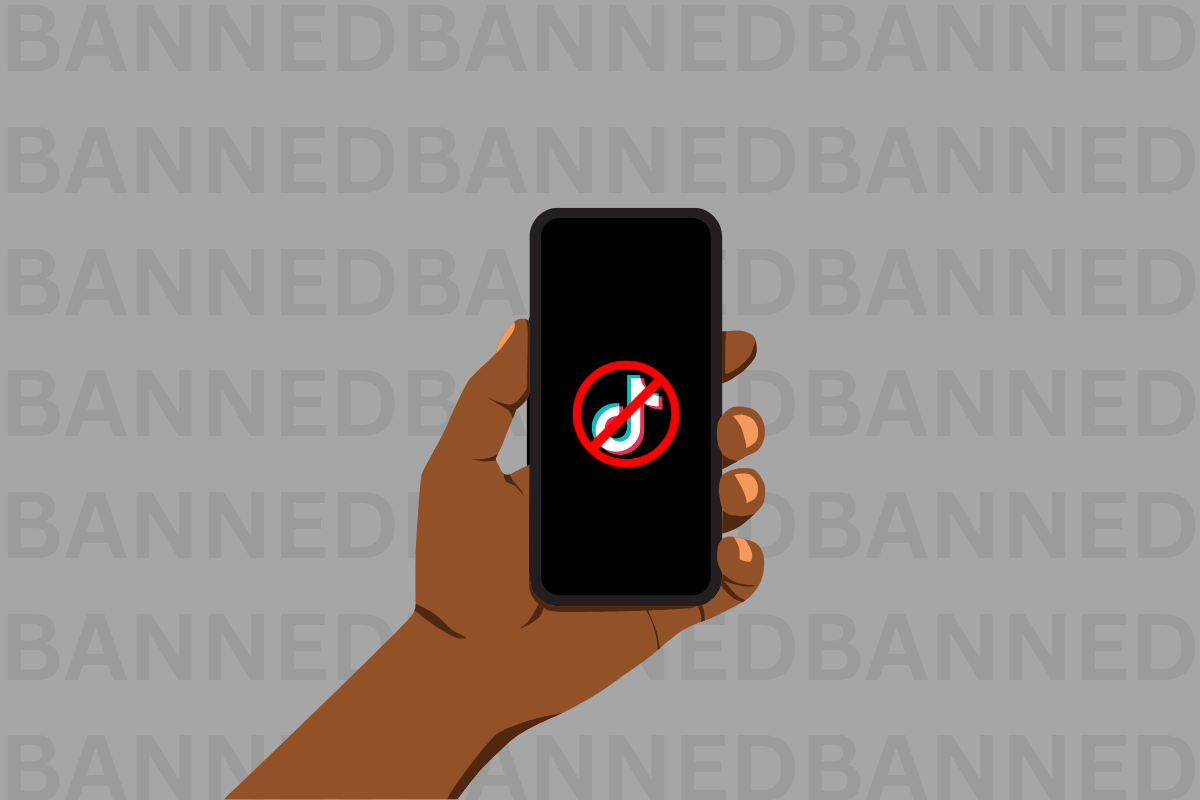Scrolling marathons, dance trends with the same recycled moves every time, and the questionable antics of your favorite (or least favorite) content creators could all be wiped away come Jan. 19, 2025.
The TikTok ban didn’t just become a hot topic in 2023—it’s been on the table since as early as 2019 when The Pentagon sounded the alarm, recommending that all U.S. military personnel delete the app from both personal and government-issued phones.
In July 2020, India banned TikTok in response to a border clash with China. Simultaneously, President Donald Trump said he would consider banning TikTok in retaliation for China’s alleged mishandling of the COVID-19 pandemic. However, he did not follow through with that statement.
Fast-forward to April 2024, when the House of Representatives passed the TikTok ban-or-sell bill with considerable bipartisan support. This situation started feeling way more real. Nothing is certain yet—the Supreme Court hasn’t officially made a clear decision on whether the ban will go through or not.
Considering the Supreme Court is predominantly made up of an older generation, the chances of them fully understanding the cultural impact of a platform like TikTok feel insignificant. To put this into perspective, as of Jan. 2025, the current U.S. Supreme Court is predominantly comprised of older justices. The justices range in age from their late 50s to their early 80s, with the average age around 70.
The TikTok ban-or-sell bill implied that if TikTok’s parent company, ByteDance, based in Beijing, didn’t sell the app to an American company, the app would be banned in the U.S. The U.S. Department of Justice said that TikTok had access to American data and was actively sharing it with the Chinese government to formulate an algorithm that would potentially sway public opinion.
But, if user safety is such a concern, then why isn’t the government prioritizing banning apps like Shein and Temu, which ask for sensitive information like credit card details, home addresses, and even identification? These platforms handle far more sensitive data than TikTok ever has, yet there seems to be less urgency surrounding them. Not to mention, Shein was found with two cases of child labor in its supply chain as well as multiple reports of banking or credit card information being sold or leaked after use on Temu–but apparently, that’s not enough to get our government to blink an eye.
The U.S. Supreme Court’s formal allegation that TikTok could potentially sway public opinion raises a serious issue related to the First Amendment. TikTok has become a crucial platform for Americans to share opinions and gain information. Banning the app would not just target a “potential security threat,” but it would also limit the freedom of speech for millions of Americans who use it as a tool for self-expression and activism.
Fortunately, TikTok has had a strong track record in defending First Amendment rights. When Donald J. Trump tried to force a sale or ban of the app in 2020, federal judges blocked the effort because it would have shut down a “platform for expressive activity.”
Additionally, TikTok has created a digital town square for people across the globe. TikTok has become a legitimate source of income for millions of creators, entrepreneurs, and small businesses. Many rely on the app to build their brands and partner with companies to gain influence. Erasing this platform simultaneously erases the primary source of income for many people. For some, TikTok isn’t just an app; it’s a livelihood. Losing it would mean losing years of investments and community-building that cannot be easily transferred to another platform due to TikTok’s constantly updated algorithm being incomparable to any other app.
I find it utterly ridiculous that our country prioritizes removing an app because it might spread ‘misinformation’ critical of the United States rather than focusing on addressing more pressing issues. The Department of Justice is responsibilities are to focus on national security, civil rights protection, and legal counsel. Addressing the potential security risks tied to TikTok might fall under its scope, but prioritizing the ban of an app that many Americans have argued against raises questions about whether our resources are being allocated effectively to address the nation’s urgent needs.
Regardless of whether the app gets banned or not, our generation always seems to find alternatives. People are already scrambling to answer the question of “Where do we go if TikTok disappears?” With this, they’ve already started making accounts on RedNote, known as Xiaohongshu, in China. The funny thing is that RedNote isn’t formally meant for American audiences. The app is solely in Mandarin, and it’s difficult to verify your American phone number for a Chinese-based application. Yet, just days after the influx of American users, the hashtag “#TikTokRefugee” has already taken over. We are so unserious.
America, let’s set our priorities straight. Instead of focusing on what’s popular or politically convenient, let’s worry about making sure that our future generations don’t need a TikTok tutorial to figure out how to navigate a world that’s already facing so many challenges.





